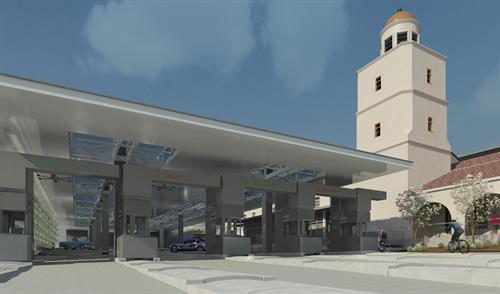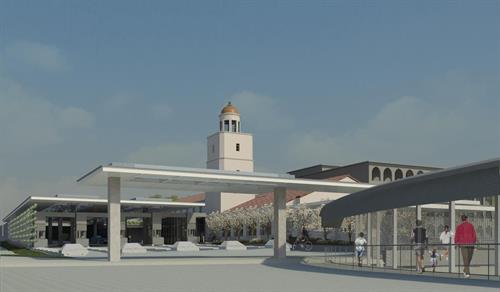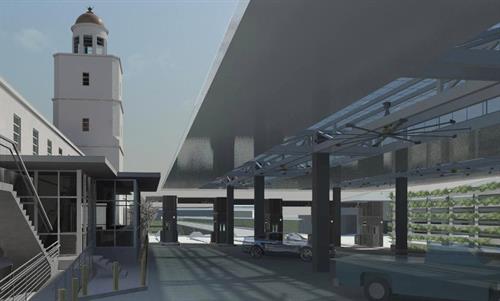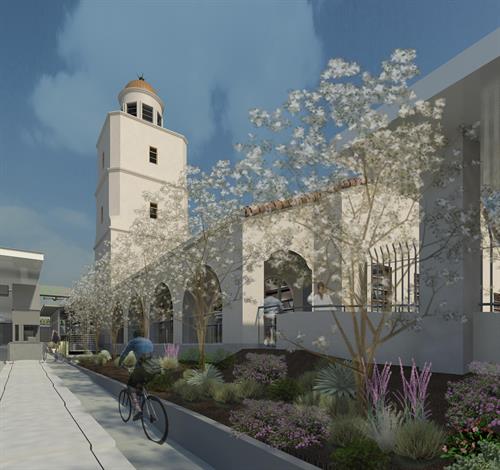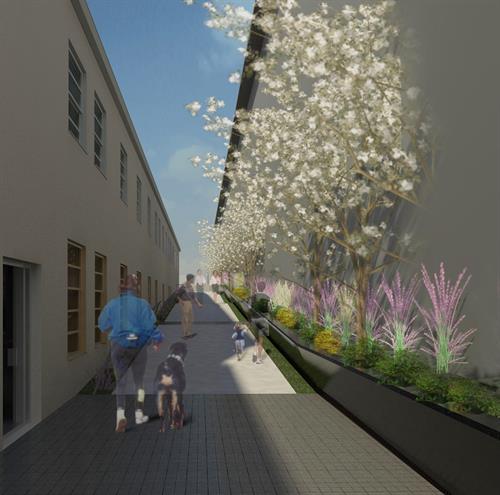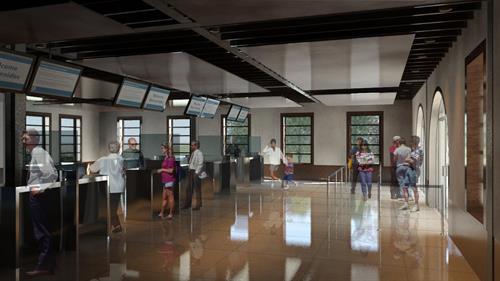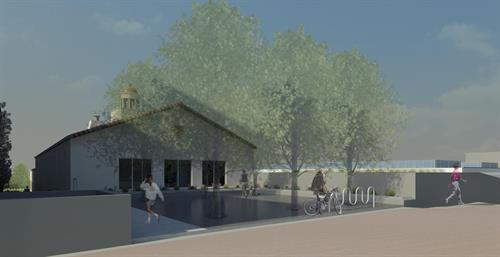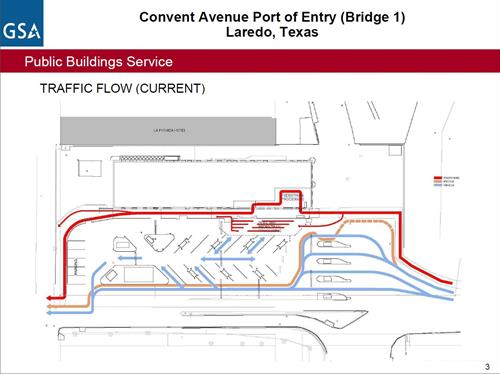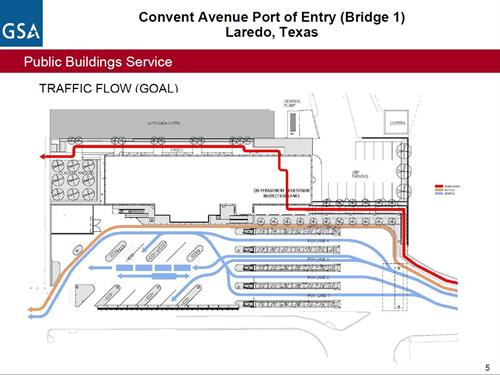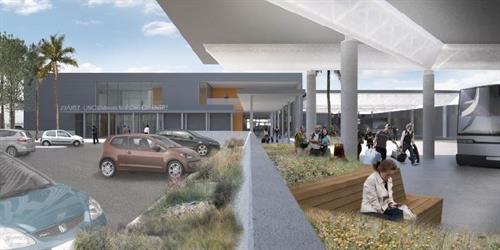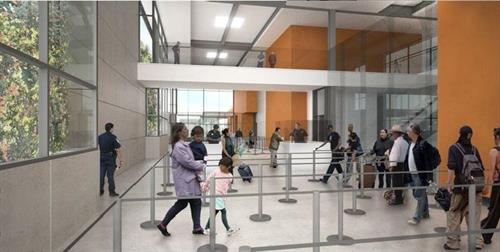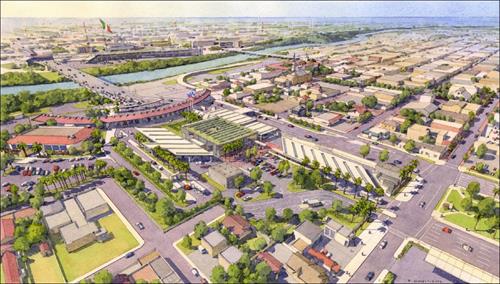Press Release
Rep. Cuellar Announces Additional $26.8 Million in Federal Funding for Bridge I Renovations$26.8 million for Bridge I, together with previously-announced $62 million for Bridge II renovations, represents an $88.8 million federal investment in Laredo
LAREDO, Texas,
December 22, 2015
|
Rafael Benavides
((956) 725-0639)
Today, Congressman Henry Cuellar (D-TX-28) announced the awarding of $26.8 million for long-awaited renovations to the Gateway to the Americas International Bridge, also known as Convent Avenue Bridge I in Laredo. In June of 2015, Congressman Cuellar announced a $62 million in federal funding for renovations to the Juárez-Lincoln International Bridge, also known as Bridge II. The combined funding for renovations to both bridges in Laredo are approximately $88.8 which Congressman Cuellar secured during the U.S. House Appropriations Committee Fiscal Year 2014 Budget. A press conference will be held in Laredo in the near future.
Long overdue, the current Bridge I is 70 years old and is the oldest of Laredo’s four ports. Its last major renovation was more than 25 years ago. This new funding will allow for a complete internal renovation of the main building to optimize the space to improve pedestrian flow through the port. Currently, the bridge has 8 pedestrian booths (three indoor, five outdoor) and 4 automobile booths. U.S.-bound traffic statistics for 2014 show Bridge I had approximately 3.5 million pedestrian crossings and 1.3 million automobile crossings, with an estimated 2.5 million estimated automobile passengers. The facility is in need of an updated design to improve wait times, waiting conditions and accessibility for visitors with disabilities or other physical impartments. As part of this project, improvements will be made to increase the number of pedestrian processing lanes to 14 and add a dedicated bicycle lane, reconfigure the primary car inspection lanes, upgrade and modernize the secondary area for further inspection, modernize security systems so drivers and pedestrians can flow through the port faster and renovate the pedestrian canopy to shade them from the sun while waiting in line. All of these improvements will make the process of moving pedestrians and automobile passengers faster, safer and more efficient. This should reduce peak automobile wait times from 33 to 15 minutes, and peak pedestrian wait times from 49 to 21 minutes. The renovations for Bridge I will begin in April 2016 and will last approximately 22 months. Mexico-bound traffic, along with U.S.-bound bicycle and pedestrian traffic will not be affected during this process. However, all U.S.-bound automobiles will be re-routed to the Juárez-Lincoln Point of Entry (Bridge II), for an estimated 14-18 months. Construction for the $62 million Bridge II renovation began in September 2015 and is expected to be completed by Spring 2018. Bridge II ranked as the busiest crossing for bus passengers in Fiscal Year 2014, with an average of 2,796 passengers per day (125-150 bus crossings per day). The layout of Bridge II is outdated, which contributes to long wait times. Currently, bus processing occurs in an outdoor area that is ill-equipped for the massive bus traffic the port receives. Both the bus and automobile inspections currently occur in exterior spaces, which subjects travelers to uncomfortable and extreme temperatures common to our area. The new design will include a new bus and automobile inspection canopies and the construction of a new combined bus and passenger vehicle inspection facility, which will improve the flow and processing of bus and automobile traffic. It will also provide a very positive first impression of Laredo and the United States for travelers while providing for their safety and national security. The improved bus configuration is expected to reduce peak transit times from 160 to just 40 minutes. “Laredo is strategically located between two great powerhouses for commerce. This project, along with the current improvements that are already underway at the Juárez-Lincoln International Bridge, represents an enormous $88.8 million federal investment in our community,” Congressman Cuellar said. “These international bridges provide a vital service to our area by increasing commerce and tourism and connecting families across the border. By enhancing traveler experience, shortening wait times and increasing both efficiency and security at our ports, we are investing heavily in a more modern and business-friendly Laredo that will aid us tremendously in our future growth. Families, travelers and businesses will be able to soon reap the benefits of these newly-improved layouts with state-of-the-art technology.” Sylvia Hernandez, the Regional Administrator for the General Services Administration stated, “GSA is pleased to announce the award for the modernization of the Convent Avenue Bridge in Laredo. The project will increase efficiency and improve safety and security for both vehicular and pedestrian traffic. It will also help CBP to accomplish its mission to safeguard America’s borders.” “I thank Sylvia Hernandez, GSA Regional Administrator, and David Higgerson, Customs and Border Protection (CBP) Director of Field Operations for the Laredo Field Office, for their tremendous work on these projects, as well as Mayor Pete Saenz, City Manager Jesus Olivares, and the Laredo City Council for their support” continued Congressman Cuellar. “In addition, we will work with the City of Laredo, the City of Nuevo Laredo, CBP, Mexican Customs and the private sector to minimize disruption to the flow of traffic and surrounding businesses during construction.”
### |


